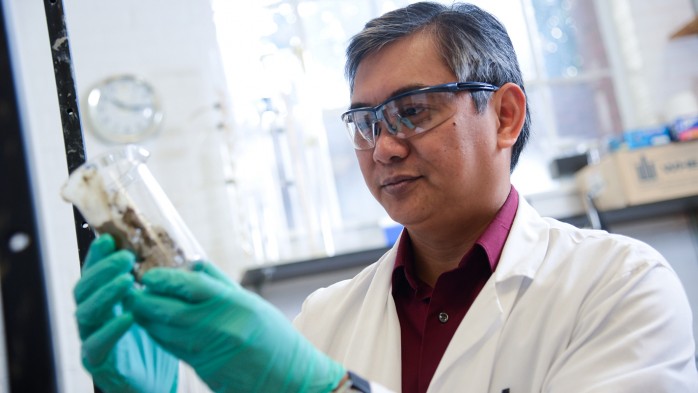The following excerpt is from NC State News; please click here to read the full article.

According to Francis de los Reyes III, the problem with World Toilet Day is that it focuses almost entirely on toilets.
“Toilets are only the beginning of the process, assuming you even have a toilet,” says de los Reyes, an environmental engineer, public health advocate and professor at NC State University. “The toilet, outhouse or pit latrine is the user interface for urinating or defecating – but there’s a whole chain of sanitation that follows. The waste has to be stored, removed, transported, treated and then either re-used or disposed of. Every stage in that process is important to protecting public health. We need to think beyond the toilet.”
The United Nations has declared Nov. 19 World Toilet Day to draw attention to the public health problems raised by a lack of sanitation. The U.N. estimates that 2.5 billion people around the world do not have access to adequate sanitation, and that 760,000 children die each year from inadequate sanitation and contaminated water.
“That’s just not acceptable,” de los Reyes says.
De los Reyes thinks about human waste a lot. He went to graduate school in the United States, studying state-of-the-art wastewater treatment technologies. And after joining the ranks of academia, his research focused in large part on using advanced molecular techniques to gain insight into the microbial organisms that play key roles in breaking down waste. Pretty cutting-edge stuff.
But de los Reyes didn’t grow up in the U.S., where wastewater treatment plants and septic tanks are taken for granted. He grew up in the Philippines. And he wanted to apply his research skills to problems that most people in the U.S. never even think about.
“I wanted to address problems that are relevant to the world, not just the developed world,” de los Reyes says. “That’s what led me to this area of research. The ultimate goal here is to save lives.” [Note: a TED talk by de los Reyes on human rights and the importance of sanitation can be seen here.]
If you want to study how to tackle human waste in the developing world, one of the biggest challenges is money. Frankly, it’s tough to find funding for work in this field. But in recent years, de los Reyes has managed to pull together enough support to launch four research projects on four different aspects of waste management.
